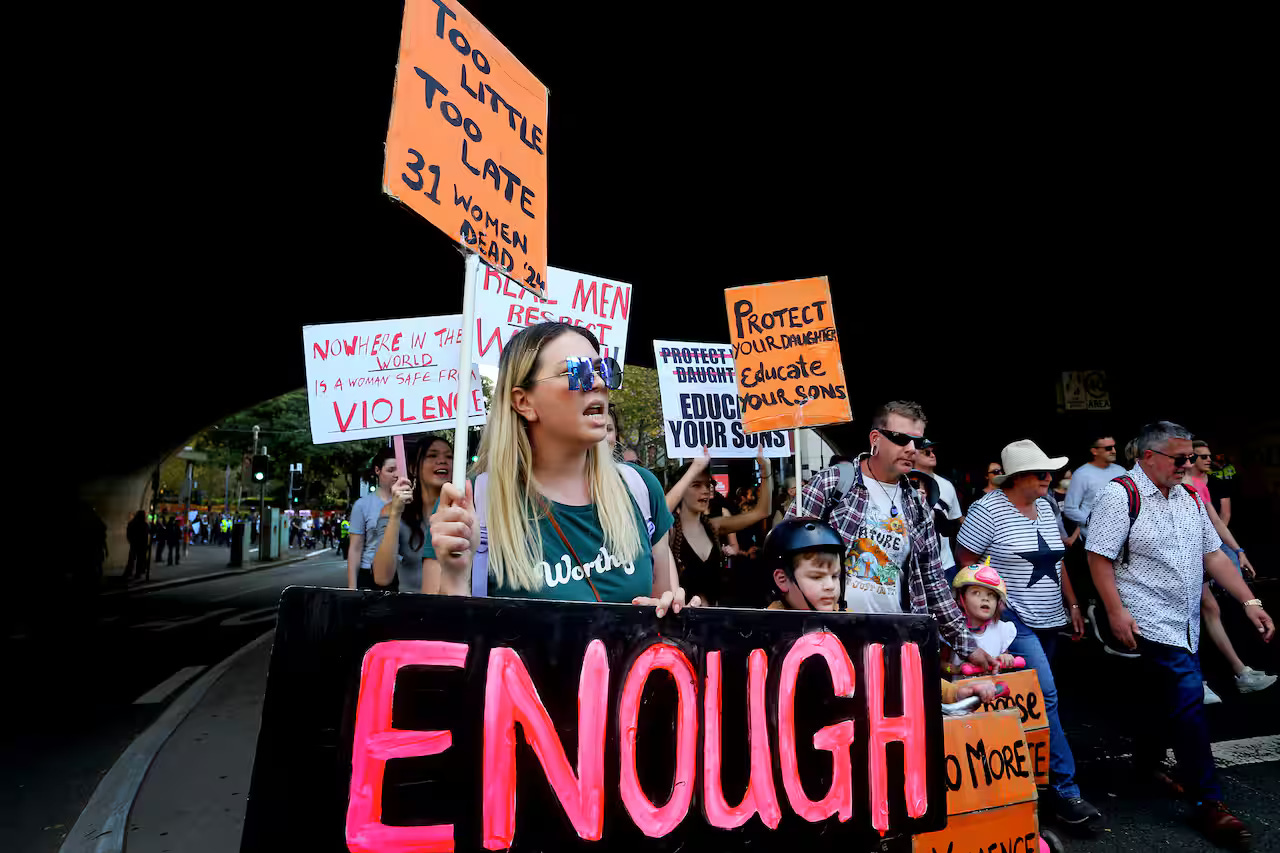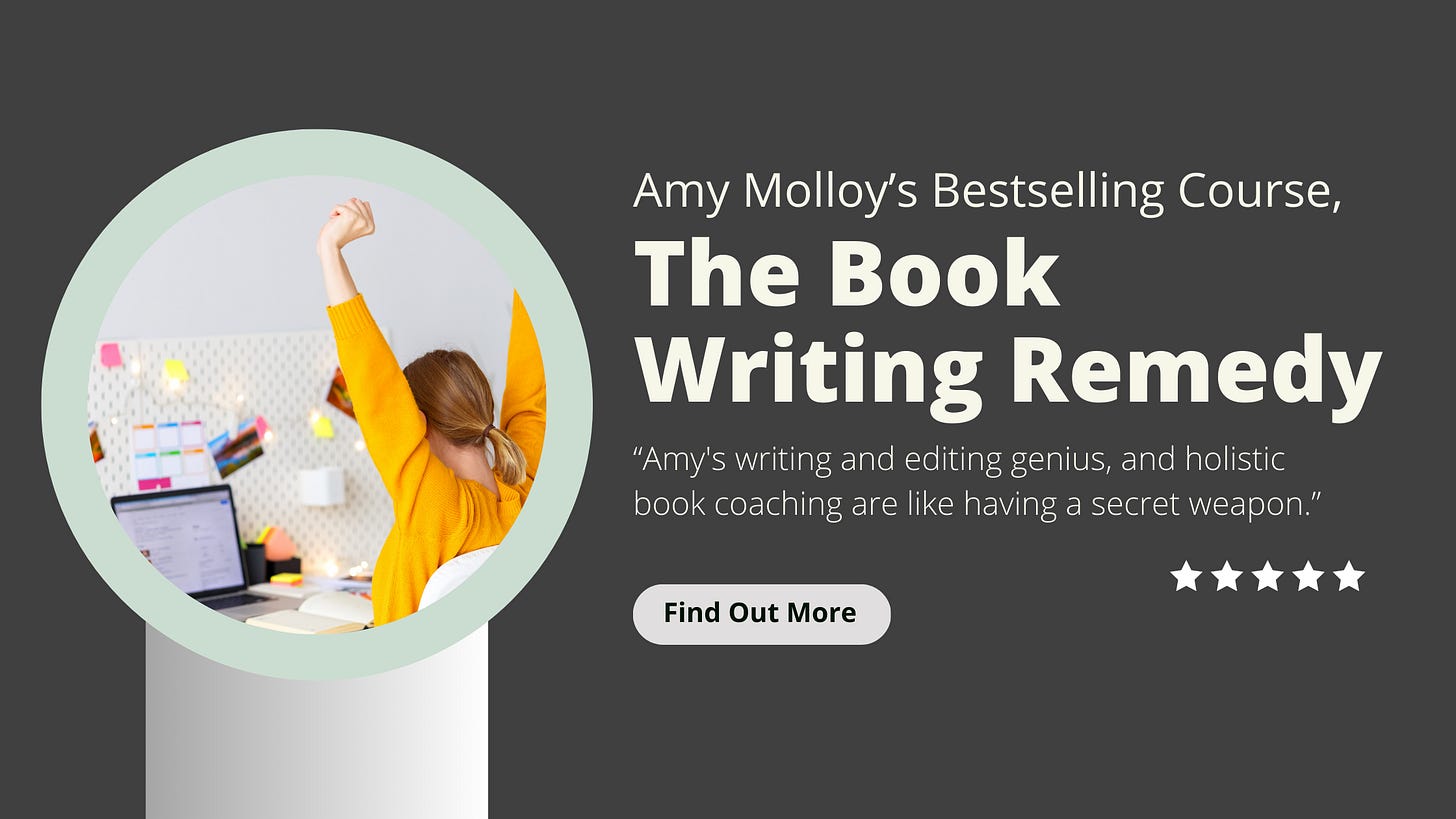Ready to Share Your Story of Domestic Violence? Read This …
"Let’s remember — we’re trying to protect you, not them."
Hi! I’m Amy from LightWriter Media.⚡ I write about social trends, parenting, anxiety recovery, and healing through storytelling. Drop your email here so you don’t miss a future post.
As I write this, Australia is experiencing it’s ‘me too’ moment for gendered violence. In Australia, one woman is killed every 15 days by an intimate partner, and one in six women had experienced physical and/or sexual violence by a current or previous cohabiting partner since the age of 15.
This week, across Australia, women (and men) took to the streets to march for better protection against gender-based violence (GBV), which can include sexual, physical, mental and economic harm inflicted in public or in private.
To raise awareness — and because they’re sick of suffering in silence — women who have experienced domestic or family violence are stepping forward to share their stories publicly.
If that is you, I stand with you … but I would like you to read this first.
As a trauma-informed editor and holistic writing coach, I am currently working with three women who came to me because they want support in sharing their personal experiences of family and domestic violence. Violence at the hands of their fathers. Violence at the hands of their partner. Violence they saw their mothers experience. The list goes on…
I have to be honest: in the past, I have gently declined book writing clients like these. It can be a minefield, especially if the abuser was never convicted for their crimes. But, this year, something shifted within me. Like many, many women I was tired of seeing nothing change, and women carrying the shame of their stories.
So I started to support these female writers; to explore ways to share stories of family and domestic violence in a way that would empower them, rather than making them feel even more vulnerable.
Here is my very, very important disclaimer. This article is a compilation of information and should not replace the need to seek legal advice. Every writer who uses my services must take responsibility for seeking a ‘legal edit’ of their work before publishing it publicly — this is to protect you, not the person who abused you.
Now that’s said, I’m going to talk about my personal experience supporting writers who have experienced gendered violence — and why it’s so important.
Unpopular truth: you can’t just tell your story, even though you deserve to.
In Australia, we are an ‘innocent until proven guilty’ country. If an abuser hasn’t been convicted of a crime (for instance, if it was your father or your first boyfriend), then a defamation case can be taken against you if you write about an incident and the abuser can be identified.
This might seem obvious, but it’s even true if you don’t name them.
Sometimes, a writer can think it’s enough to change a person’s name but, if you’re talking about ‘my husband’ and you have only been married once, it is very easy for people to join the dots and identify who you’re speaking of.
The Arts Law Centre of Australia has a number of great resources explaining defamation in the arts, whether it’s a memoir, a comic book or a blog post. As they state:
Serious Harm
The defamation reforms have introduced a threshold requirement that the allegedly defamatory matter has caused (or is likely to cause) serious harm to the plaintiff. A person who wishes to take legal action for defamation must be able to prove that they have suffered, or could suffer, ‘serious harm’.
One question, I often get is: can you be sued for defamation if a person is deceased? As at May 2024, when this article was written, under Australian law, defamation does not apply to deceased persons. As Australian law firm, Stacks, states:
‘Common law states the dead have no rights and a person’s reputation cannot be violated if they are no longer alive. Only a living person can bring a legal action for defamation.’
However, in different parts of the world, the surviving members of a family or the holder of a person’s estate can sue for defamation on their behalf. In certain countries, you can also sue if a person has been dead for less than three months (again, this is why it’s important to consult a lawyer about your personal situation).
I know what you’re thinking: where does this leave a survivor?
The sharer of the story needs to ask themselves: why do I want to share my story in the first place? Do I need to ‘name and shame’ an individual to fulfil my purpose and reach my goal? This might not be a simple answer…
These are my personal pillars when I work with clients who wish to talk about family and domestic violence:
Writing isn’t revenge — the goal of sharing your story isn’t to destroy someone else’s life. Writing from a place of anger or revenge is rarely as fulfilling or purposeful as you think it will be.
It’s a love letter to women — how can your story help to liberate or heal another woman who has either escaped a domestic violence situation, or is still within it?
Could going public put you in further danger? As The Women’s Centre for Health Matters states in their guidelines for the media: ‘Safety comes first. Ensure that you report on the issue in a way that doesn’t compromise the victim’s safety. This might involve leaving out some details about the specifics of what occurred in order to protect the victim’s anonymity.’
*Side note — there is an ongoing debate about whether to use the word ‘survivor’ or ‘victim’ when writing about DV. According to a report by SAKI, The Sexual Assault Kit Initiative, there is a need for both terms.
It explains: ‘The term victim typically refers to someone who has recently experienced a sexual assault; additionally, this word is commonly used when discussing a crime or when referencing the criminal justice system. The term survivor often refers to an individual who is going or has gone through the recovery process; additionally, this word is used when discussing the short- and long-term effects of sexual violence. Some people identify as a victim, while others identify as a survivor.’
If in doubt, it is better to ask a person — or sit with each term and see what feels truer for your self.
Do you have the support of a therapist? I am a qualified counsellor but I still recommend that my clients seek the support of a therapist when planning to write a book, or any form of public medium. In writing a book — or sharing your story in any way — you are required to look back at some of your toughest experiences, and this can be extremely triggering.
One in Six Women Needs Your Story (Hell, We All Do!)

Now I’ve scratched the surface of what we can’t share … I’m going to talk about what we should! Because there is a reason, I’m so passionate about sharing the stories of survivors — we need hope, we need change and we need to unleash the collective power of storytelling to make it happen.
Once you realise that it’s less about one person and more about collective change, it gives us the freedom to use creative license to protect you.
I’ll give you an example.
One of my writers saw her father sexually assaulting her mother when she was 10-years-old. This is relevant to her story because she went on to marry a partner who also committed acts of sexual and physical violence, continuing the cycle.
Her father is still alive and was not convicted of a crime, so we cannot state that he assaulted her mother (at risk of a defamation case!). Her mother has given us written permission to share her story, so we could say:
“When I was 10-years-old, I saw my mother being sexually assaulted by one of her partners.”
This is still not iron-clad — you could argue that this ‘partner’ is still identifiable. Her mother and father, however, divorced when she was very young and her mum did go on to have several partners. There could be a defence that we could be talking about any of them.
For a writer/survivor, this approach can require some acceptance. Your inner child, wants to cry: “He did it, he shouldn’t be protected.” But let’s remember — we’re trying to protect you, not them.
This comes back to the point of sharing your story — it isn’t about revenge, it’s about lifting other women and calling for systematic change. This writer’s story is one of survival against the odds, and how she finally managed to break the cycle of gendered violence.
It is a story of miraculous healing and radical responsibility. She is writing it for every woman, like her, who has found herself in a domestic violence situation, and doesn’t even realise it because, to them, gendered violence is so ‘normal’.

This is why we share — to lift the blinkers of the world, and let the uncomfortable, important truths have air.
I can’t stress enough how this is only the tip of the ice-berg. Whether you’re a journalist or a memoir writer, sharing stories relating to domestic or family violence is a complex art — but that doesn’t mean they need to be censored.
Here are some of the main lessons, I’ve learnt (and got wrong!) over my years as a news reporter and editor:
If you’re a reporter, don’t fall back on the cliché that ‘it came out of nowhere.’ Most perpetuators of domestic violence have a history of abuse, even if it’s hidden and subtle.
Do include statistics – there are some shocking ones out there about the rates of DV and FV in Australia and globally. Let’s drive home, this is not a minority story; it’s a systematic issue that needs to change.
Seek as much support as humanly possible — from a lawyer, from an editor like me, from a ‘friendly’ publication who won’t sensationalise your story for click-bait. I have a list of publications that I recommend, writers pitch to (and a few publications, I recommend they avoid).
Remove your name if you need to. You can share your story anonymously but, I know, for many women who’ve experienced gendered violence, putting their name to their story is part of their healing work in owning what they’ve been through.
Always include resources and support services at the end of a story, and not just phone numbers. For example:
Text 1800RESPECT
1800RESPECT is Australia’s national domestic, family and sexual violence counselling, information and support service
You can contact the service in four ways: call 1800 737 732, text 0458 737 732, online chat and video call via our website.
Here are some great resources for writers.
· Media Guide to Reporting on Domestic Violence. — Women’s Centre for Mental Health Matters
· Arts Law — Empowering artists and creative communities through the law.
· Shelter’s Guide to Writing About Domestic Abuse, including appropriate terms and language
Scholarships for Survivors
If you are interested in sharing your story of gendered violence, but you don’t have the resources to pay for the services of an editor like me, I am happy to gift you a place on my online course, The Book Writing Remedy, which includes guidance on how to protect yourself when sharing a personal story. Just email me at info@amymolloy.com.au with the subject line ‘Substack course signup’, and I’ll add you.
I’ve made this article FREE to read in the hope it can be circulated and used as a resource by women thinking of sharing their story — I’d appreciate it if you could like it, and share it, to help it to reach more people.
Amy x





